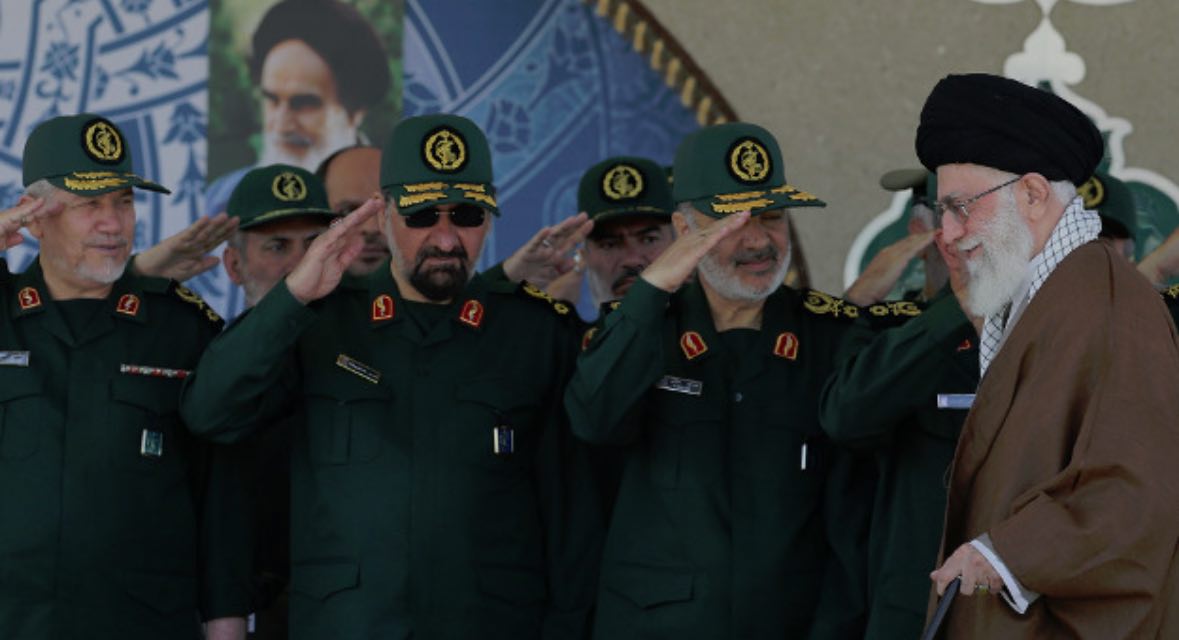Collapse of the Military Command Room
Collapse of the Military Command Room
Israel has launched stunning attacks on Iran, targeting objectives across the country with a focus on the military and nuclear programs of the Islamic Republic. The full extent of the damages is not yet clear, as details of Israel’s surprise operation have not been fully released. However, Iranian state media have confirmed the deaths of several senior military commanders and nuclear scientists.
On Saturday, June 13, the names of eight senior Iranian military commanders killed in the Israeli attacks were released: Mohammad Hossein Bagheri, Chief of Staff of the Armed Forces; Hossein Salami, Commander of the Islamic Revolutionary Guard Corps; Gholam Ali Rashid, Commander of the Central Headquarters Khatam al-Anbia; Amir Ali Hajizadeh, Commander of the Aerospace Force of the IRGC; Mehdi Rabani, Deputy Operations of the Armed Forces General Staff; Gholam Reza Mehrabi, Deputy Intelligence of the Armed Forces General Staff; Davood Shekhian, Commander of the Air Defense of the IRGC Aerospace Force; Masoud Shanhehi, Head of the Office of the Commander-in-Chief of the IRGC.
But what are the implications of this blow to the senior military commanders of the Islamic Republic? This is the question that Foreign Affairs magazine has posed to Afshon Ostovar, an expert on Iranian military affairs and author of the book ‘Vanguard of the Imam: Religion, Politics, and the Revolutionary Guards of Iran’.
Afshon Ostovar says this is a major blow. The Israeli attack eliminated a think tank that had been advancing Iran’s military strategy for 20 years. This Iranian military expert considers the greatest loss to be the death of IRGC Aerospace Commander Amir Ali Hajizadeh, who was the architect of Iran’s military strategy and was considered the most important military thinker of the Islamic Republic until last year. In this regard, Mohanad Hage Ali from the Carnegie Middle East Center, a think tank in Beirut, told Reuters that changing the military strategy means Tehran’s surrender, and this seems unlikely under the current circumstances.
Mohanad Hage Ali says they cannot survive if they surrender. They must inflict severe blows on Israel, but their options are limited. Hossein Mousavian, a former nuclear negotiator and former Iranian diplomat, wrote on his X account that Israel’s attack revealed the ineffectiveness of the NPT treaty and the International Atomic Energy Agency. Hossein Mousavian says the attack on Iran’s nuclear facilities will have an undeniable impact on Iran’s future nuclear strategy.
Three Determining Factors in the Israel-Iran War
Karim Sadjadpour, an Iran expert at the Carnegie Endowment for International Peace, wrote that Israel has described Iran’s nuclear program as an existential threat for decades, and it was never clear whether Iran was trying to acquire a nuclear weapon or simply wanted to quickly attain this capability if it felt threatened. According to the Vox website, Israel’s initial attacks on Iran, which included eliminating military commanders and senior nuclear scientists, are a tactical victory for Israel, but it is impossible to know how this war will end. According to Sadjadpour, based on historical experience, the full impact of Israel’s attack on Iran will take years to reveal whether it will prevent Iran from acquiring a nuclear bomb or destabilize or further stabilize the Iranian regime.
This Iran expert at the Carnegie Endowment added that there are three key questions in determining the outcome of this crisis: Is Israel’s goal limited to destroying Iran’s nuclear program, or is regime change in Iran also on its agenda? To what extent can Iran retaliate? And how will these attacks affect Iran’s thinking regarding acquiring a nuclear bomb?
In Iran’s governmental system, personalities are truly important because, compared to democratic countries, individuals remain in power positions for a longer time. In the system of the Supreme Leader, the relationships that senior commanders have with Ali Khamenei shape Iran’s decision-making. According to Afshon Ostovar, an expert on Iranian military affairs, Ali Khamenei relies on this think tank not just metaphorically but literally; they actually advise him and he trusts them to execute what they propose to him.
According to this military expert, Israel’s attack did not just eliminate military leaders but acted like wiping out a significant part of Iran’s National Security Council. It’s as if the country’s cabinet has been dismantled. In this regard, Ayatollah Khamenei is now much more alone than he was before.

